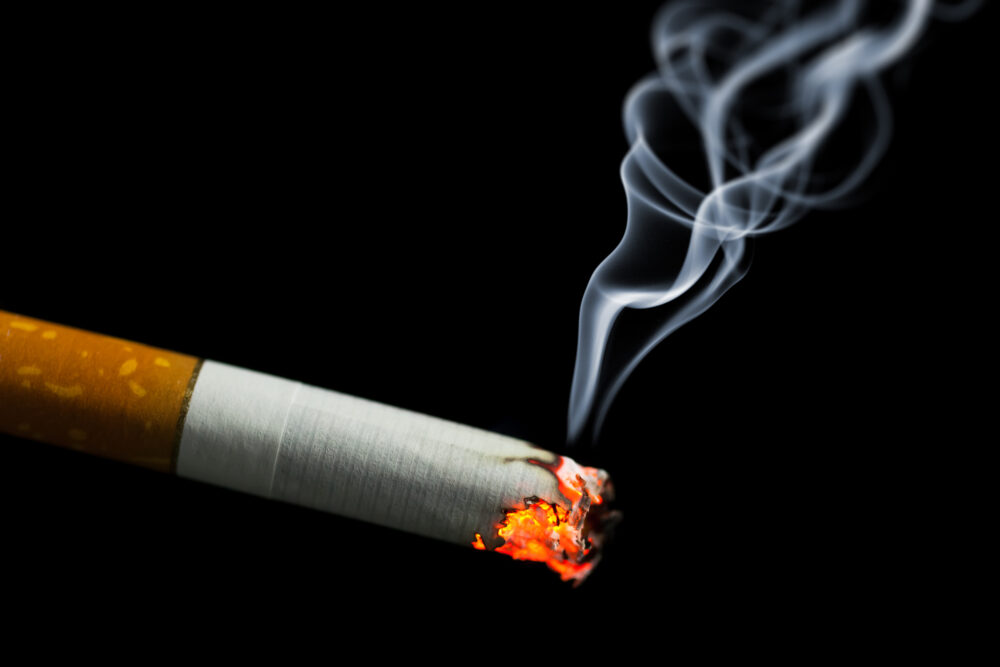
When is National No Smoking Day? Well, the very first No Smoking Day began back in the 80s, and since then it’s taken place on the second Wednesday in March.
It’s a great way to encourage smokers to attempt to quit – and it’s been pretty successful. Research conducted by GfK NOP found that 1 in 10 smokers quit on No Smoking Day.
But why should bother joining in? To answer that question, we have to answer what are the benefits of quitting smoking.
And remember, at EWS we have courses to help you quit for good, all you have to do is fill out the form at the bottom of this page.
Quitting smoking will help you to save money
We all know that smoking isn’t exactly cheap. But do you know how much it’s costing you each year?
If you were to smoke 40 cigarettes per week, with a pack of 20 costing around £10, that’s £20 per week; and a whopping £1040 per year – but that’s only if you’re smoking a minimum of 40 cigarettes per week.
With this in mind, think about what you could be spending this money on instead of smoking it. Perhaps a weekend or two away, a new phone, a pet, a new wardrobe, or a fancy new watch!
You’ll also reduce the financial burden on our NHS
£12.6 billion. That’s the approximate cost of smoking to the UK Government, according to their 2019 report. This figure is made up of social care for smoking-related care needs, NHS services, and loss of productivity in businesses.
By quitting smoking you can help to reduce this cost, as well as free-up resources for people with other healthcare needs.
Improve your health
It’s an obvious one, but perhaps one of the most important ones. Regardless of how old you are or how long you’ve been smoking, quitting smoking will benefit your health in various ways.
The NHS website states:
“Half of all long-term smokers die early from smoking-related diseases, including heart disease, lung cancer and chronic bronchitis.
“Men who quit smoking by the age of 30 add 10 years to their life. People who kick the habit at 60 add 3 years to their life.
“Being smoke-free not only adds years to your life but also greatly improves your chances of a disease-free, mobile, happier old age.”
For reproduction
If you’re looking to have children, it’s important to note that smoking impacts numerous parts
of the body responsible for conceiving a child and the environment it’ll be in until they’re born. This includes:
- Men’s and women’s hormone production.
- The DNA in eggs and sperm.
- The fertilised egg’s ability to reach the uterus.
- The environment inside the uterus.
Research suggests that smokers are more likely to experience infertility than non-smokers, with every cigarette smoked increasing the risk of miscarriage by 1%.
Protect the health of others
If you’re smoking around others, you’ll be increasing the risk of them getting lung cancer, heart disease, and stroke.
Second-hand smoke impacts children very badly too. In fact, it doubles their risk of developing chest illnesses, including pneumonia, ear infections, wheezing and asthma.
Children who live with smokers have three times the risk of getting lung cancer in later life compared to those who live with non-smokers.
More benefits of quitting smoking
This is by no means a conclusive list, you can also benefit from more energy; better eye health; easier breathing; feeling less stress; better sex; improved sense of taste and smell – and more!
Why not discover the full list for yourself?
This year’s No Smoking Day theme is Quit Your Way. Our Stop Smoking services may just be the way you’re looking for! To explore your options, click here or complete the assessment at the bottom of the page.
And remember, “Overall, you’re up to 4 times more likely to stop smoking for good if you use a combination of stop smoking treatment and receive support from an NHS Stop Smoking Service.”Jennifer Percival, who trains stop smoking advisers.